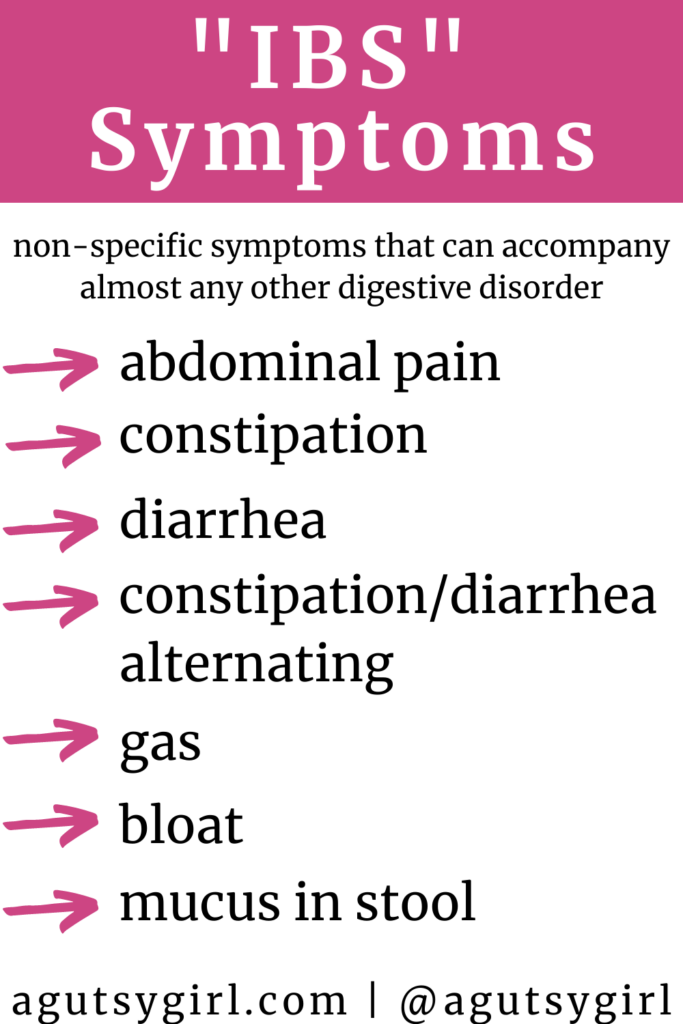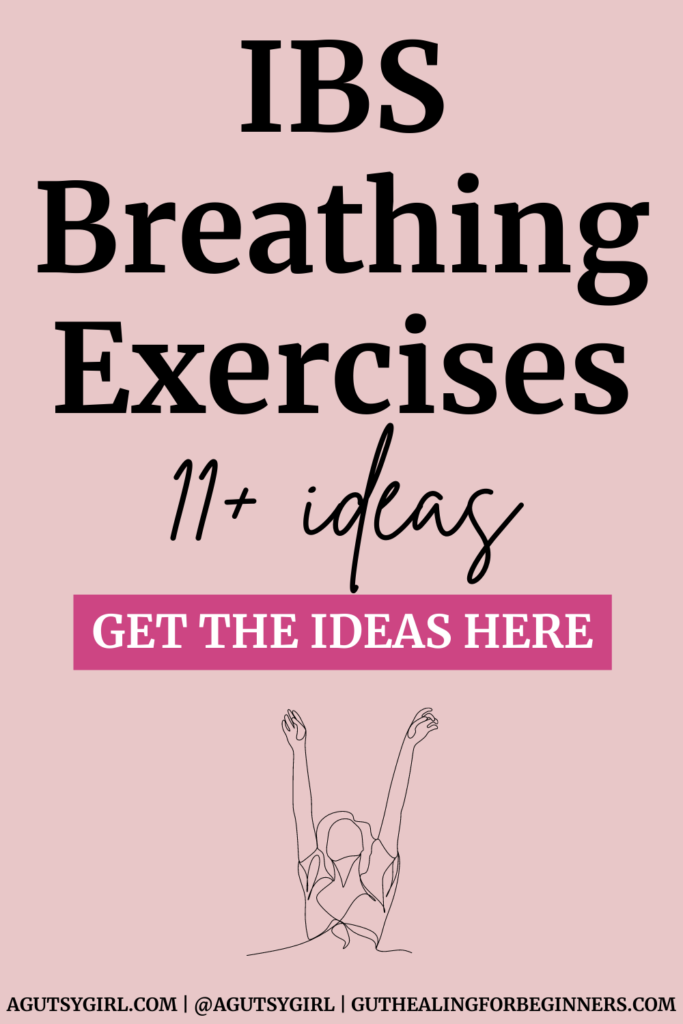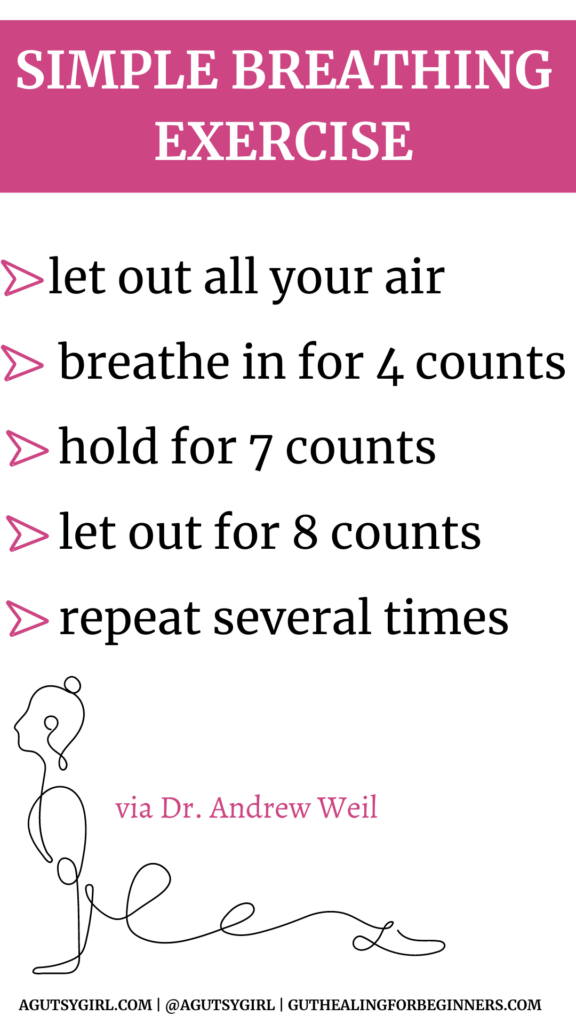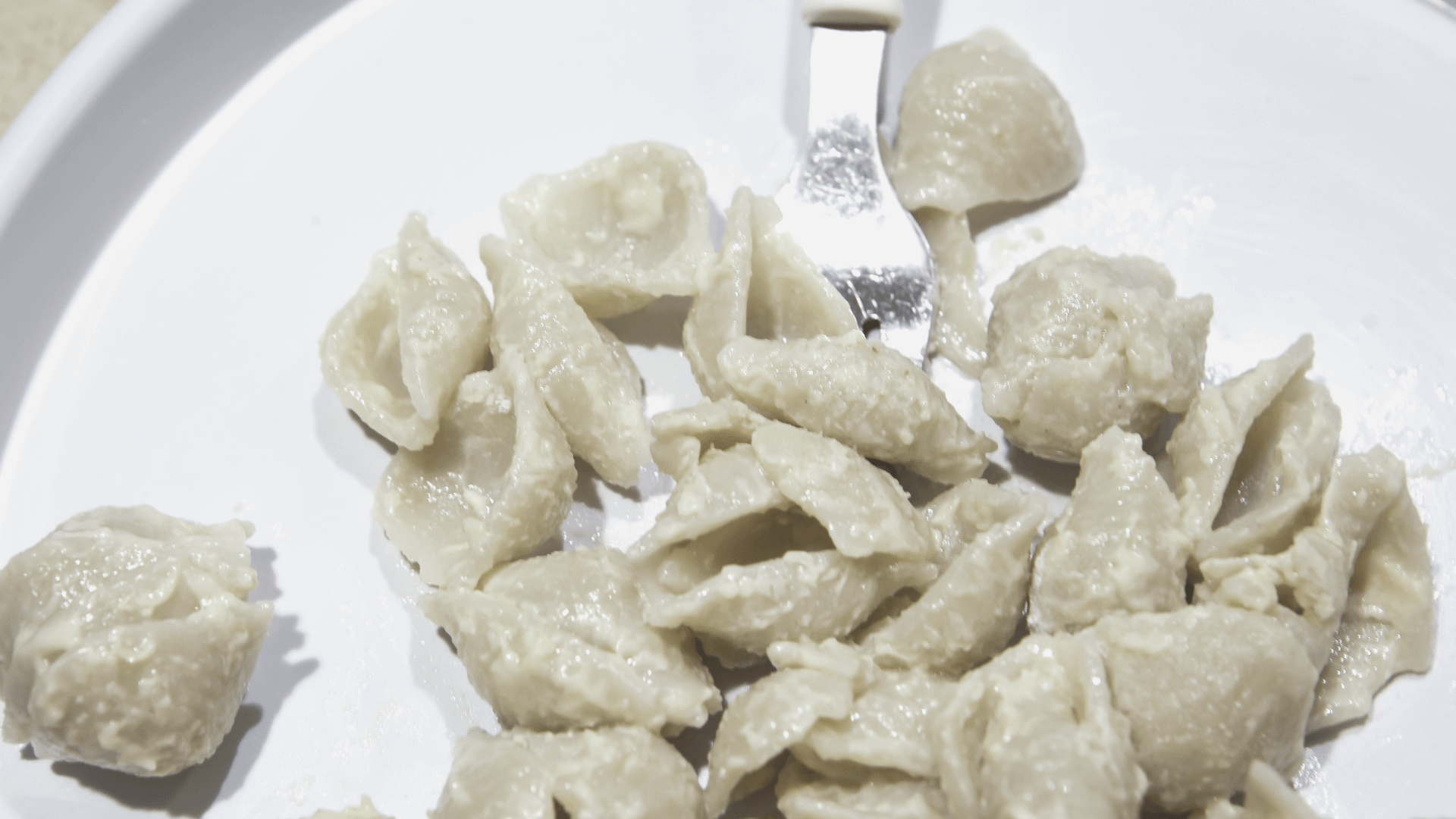When you have irritable bowel syndrome, learning some IBS breathing exercises is critical.
Good things happen, all around, when we learn to breathe deep.
In for four, out for five. Oxygen’s good; breathing keeps you alive.
Take a deep breath. No, really…we’re talking about taking deep breaths today!
What is IBS?
IBS stands for Irritable Bowel Syndrome. It is classified as a syndrome, not a disease.
Most people with this chronic condition will never develop IBD, but most people with IBD have IBS symptoms, which is why I always say IBS and/or IBD.
IBS is known as “spastic colon,” and since it’s a syndrome it’s just a set or range of symptoms that may fall into the defining category, Irritable Bowel Syndrome.
IBS, unlike IBD, does not cause tissue inflammation. In other words, if you were to be ‘scoped,’ doctors would not find tissue inflammation, scarring, etc. from IBS alone. (However, if you were scoped and did have a form of IBD, you would discover that. It would not be a pleasant finding, but critical.)
Even though there is no permanent damage done with IBS, it still can cause day-to-day pain, discomfort and misery for those who battle it. This is why I never say “it’s just IBS.” And that’s also why I always put “just” in quotation marks.
I see your pain.
According to the International Foundation for Functional Gastrointestinal Disorders, IBS affects at least 10% to 20% of adults in the U.S. — mostly women — and is second only to the common cold as a cause of absenteeism from work. (source)
(And now you know why I’m so passionate about helping women in particular!)
Finally, and this is something that people overlook all the time, but for which I’ve set out to help with.
IBS usually begins in late adolescence or early adult life — most often at times of emotional stress. Source

What are the Symptoms of IBS?
Everyone is different, namely because some have the IBS-C (constipation) version and others have the IBS-D (diarrhea) version while others have the alternating version which includes both constipation and diarrhea.
Those with IBS experience symptoms such as:
- abdominal pain
- constipation
- diarrhea
- both constipation and diarrhea, alternating
- gas
- bloating and/or distention (not the same things)
- mucus in stool
- nausea
This is not a comprehensive list, and you may experience other digestive issues and even symptoms that are not directly related to digestive organs.
What Causes IBS?
To be clear, no one truly knows what causes IBS.
Here are some theories:
- Disturbance in the gut-brain axis.
- Irregular colon motility patterns. In other words, how fast food moves through you is either too fast or too slow.
Let me be very clear, I think the statement “it’s just IBS” is BS. I believe that when given the diagnosis “IBS,” there is always more to the story. Said IBS doesn’t get any better, usually gets worse, because the root cause is not determined.
Some of these causes include:
- SIBO (small intestinal bacterial overgrowth)
- Food intolerances
- Leaky gut
- Parasites
- Yeast overgrowth
- Zinc or magnesium deficiency
- Heavy metal toxicity
It is very important to understand the underlying cause of IBS.
However, what we almost always know about the condition is that stress, namely chronic stress, plays a huge role.
Which leads me to the art of breathing.
IBS Breathing Exercises
Click HERE to save this article on IBS breathing exercises for later.

At the height of my illness, I was constantly forgetting to breathe deep. Because I was so bloated and miserable, I felt nothing but stress – my stress levels continued to increase because I could not get a full breath.
This massively impacted my daily life and the IBS flare-up would come more often than not.
I would return to the idea that maybe it was my diet, but no, it was never about the need for removing more food.
It was simply that I was not breathing appropriately fueled by muscle tension which lead to the gut-brain connection in overdrive.
I do not want this for you. So here are some ways to work yourself out of that — today!
1. A Simple Breathing Exercise
During one of my last Institute for Integrative Nutrition lectures, I learned all about the art of breathing from Andrew Weil, an effective way for managing IBS and GI symptoms.
He had us do a deep belly breathing exercise that went like this:
- Let out all your air
- Breathe in for 4 counts
- Hold for 7 counts
- Let out for 8 counts
- Repeat several times
And when it was over, I was so calm. I found myself relaxed, at peace and yet ready to find a new energy to carry me through the rest of the day.
Have you ever experienced that with deep breathing?!
Speaking of Dr. Andrew Weil, in case you care to know, here are 3 more things I learned from him/his quotes during that lecture:
- “We do not have a healthcare system in this country. We have a disease-prevention system.”
- He told us that during MEDICAL SCHOOL, they only spent 30 minutes on nutrition. <— wow, wow, wow, wow…you get it.
- “The root problem of many GI disorders is that there is an imbalance of intrinsic motility of the gut.”
Note: Box breathing is also another way of doing this. Everything is the same but it’s a 4-4-4 count.

2. Belly Breathing
Interested in another form of deep breathing?
Try Belly Breathing:
- Sit or lie flat in a comfortable position.
- Put one hand on your belly just below your ribs and the other hand on your chest.
- Take a deep breath in through your nose, and let your belly push your hand out. Your chest should not move.
- Breathe out through pursed lips as if you were whistling. Feel the hand on your belly go in, and use it to push all the air out.
- Do this breathing 3 to 10 times. Take your time with each breath.
- Notice how you feel at the end of the exercise.
Besides deep breathing exercises, here are 5 more relaxation techniques.
Low Impact Stretching and Breathing
As I mentioned at the beginning of this article, I had to teach myself how to get out of massive bloat on a moment’s notice.
And through this time period, I engaged in these 5 different ways of stretching:
- Simple bend, let your breath all out
- Cat and Seal (also great for low back pain)
- Lay on the back and bring knees to chest
- Stand tall tightening the abdominal muscles, deep breathing, side-to-side
- Simple yoga poses
I swear by all 5 of these, and IBS sufferers can do them at any given moment.
If you prefer to watch what these look like, here you go:
Regular Physical Activity
IBS patients need to get regular exercise, but unfortunately, in my experiences, one of two things is happening:
- They are getting no physical activity
- They are doing too much physical activity
Neither is the answer, and neither will help with true stress reduction. Vigorous exercise affects IBS symptoms. Don’t believe me? Read THIS.
The answer is to engage in daily activity that does not create a stress response.
Here are some ideas:
- Walking. Simple walking is not only a good idea, but also the most common activity. The good news is that it is for everyone. Just walk.
- Tai Chi, which is a Chinese martial art and system of calisthenics. With Tai Chi, you will do sequences of very slow controlled movements. You can learn about its benefits HERE.
- Yoga. Now, while there are some forms of yoga that fall into the moderate-intensity activity to even high-intensity activity, you’ll want to find one that is mild, flow-like. Not only is a yoga practice great for movement, but it can also teach you lots of mindfulness exercises, help with lower back pain (also common in IBS patients), and calm the parasympathetic nervous system.
And to that extent (parasympathetic nervous system), the last thing I want to cover is the vagus nerve.
Vagus Nerve
Besides its role in helping us make memories and breathe, the vagus nerve function is highly involved in preventing inflammation in the human body, initiating the body’s relaxation response, and translating between gut and brain.
In fact, the NIH says about the Vagus Nerve,
It establishes one of the connections between the brain and the gastrointestinal tract and sends information about the state of the inner organs to the brain via afferent fibers.
A vagus nerve disorder can even contribute to high blood pressure. It is also part of the sympathetic nervous system, responsible not only for digestion but for emotional well-being. (source)
The Vagus Nerve directly affects breathing and heart rate.
And there are some ways you can stimulate the Vagus Nerve at home, 6 of which are directly related to IBS breathing exercises:
- Deep breathing techniques (as described above)
- Medidation
- Yoga
- (Easy) physical exercise
- Singing and chanting
- Massage, which is an incredible way to practice your calm breathing pattern
Breathe Deep
Besides the obvious that breathing deep helps with getting us grounding, why else would the Gutsy girl’s community focus on deep breathing?
Obviously it all comes back to the gut.
According to Loyola Medicine, when breathing is more rapid, you feel a knot in your stomach. The body is getting ready to fight or flight, even before the mind has time to think.
The “fight or flight” response causes blood to move from the gut to the larger muscles, which interferes with digestion, weakens the immune system and increases inflammation. These changes don’t last long, and in the short term they are not harmful and may even be helpful, but when they happen again and again over time, they can hurt your health.
Do you practice any IBS breathing exercises? Have another technique for deep breathing that I did not mention here? Share it in the comments below.
If you liked this article on IBS breathing exercises, you might also enjoy:
- The Digestive System
- Bristol Stool Chart (what your bowel movements should look like)
- Complete List of Common Digestive Disorders
Xox,
SKH
🤰 bloating be gone! weight loss through optimal gut health for women
💃ʜᴇᴀʟ ʏᴏᴜʀ ɢᴜᴛ. ʜᴇᴀʟ ʏᴏᴜʀ ʟɪfe.
🫶🏻 founder gutbyome.com






